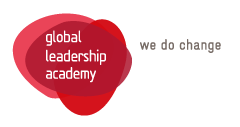The Global Leadership Academy's objective is to enable change on a personal, organisational, and systemic level. Our formats take an emergent approach to change – we don’t formulate the objectives for change initiatives, instead, we provide an enabling space where new ideas can be sparked, networks created and paths to change tried and tested.
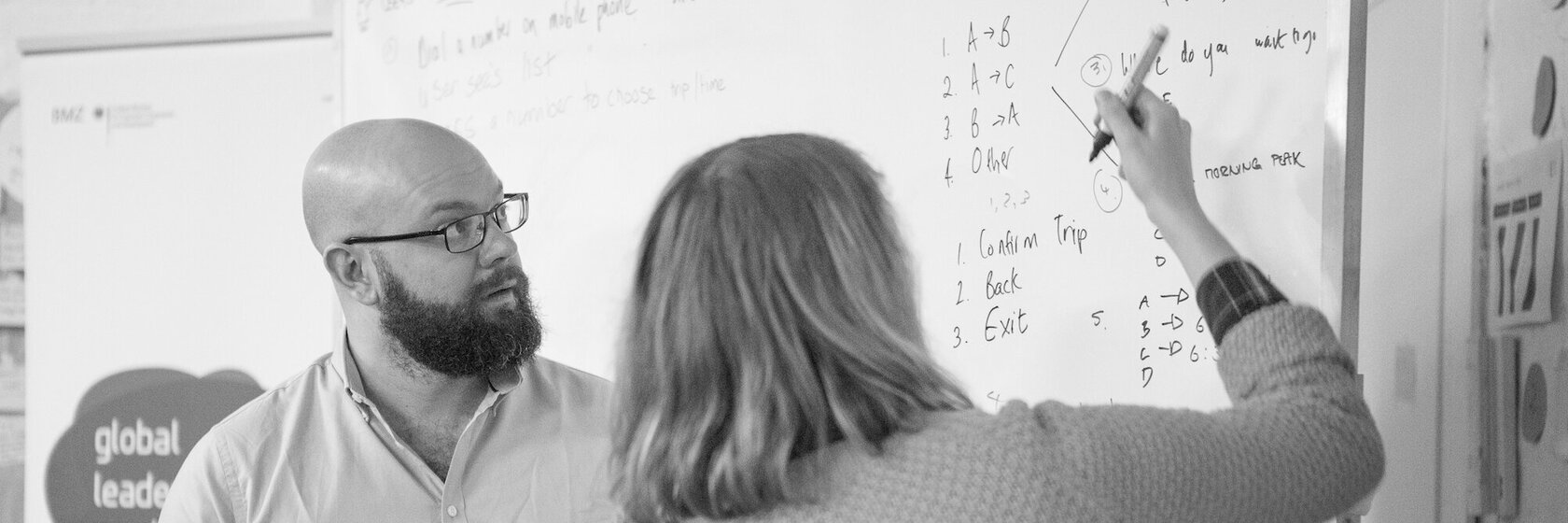
"We value the strategic insight and focus on leadership that the Global Leadership Academy brings. We are pleased to be partnering with you in the space of leadership and coalition building for development."
Dr. Ajay Tejasvi, Collaborative Leadership for Development, The World Bank
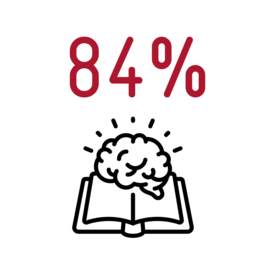
Obtained New Skills
Obtained New Skills
84% of our participants confirm that they obtained new skills due to their participation in GLAC dialogue processes.
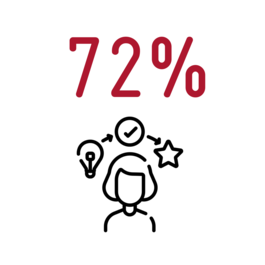
Applied New Skills
Applied New Skills
72% of our participants apply these new skills in their work context.
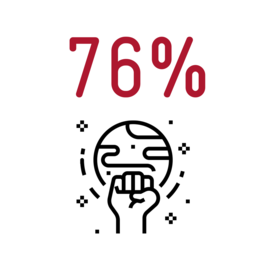
Started Transformation Processes
Started Transformation Processes
76% of the participants state that they have initiated a transformation process as a result of the participation in one of our dialogues.
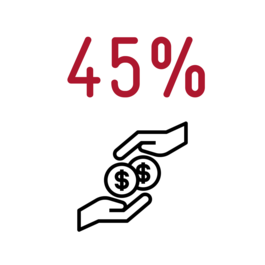
Operational Costs Supplied
Operational Costs Supplied
45% of the operational costs since 2012 were supplied by partners of GLAC and participants of the dialogues. We aim at working on eye level with all our partners and participants, this being also reflected by our funding model.
* We acknowledge that we were making subjective human choices obtaining our data, to show the overall average. The numbers given do not reflect all the different groups of people who responded to our surveys. We acknowledge that there are many choices that embed our perspective on the data.
Booklet Change Initiatives 2012 to 2021
"The Thomson Reuters Foundation has very much enjoyed its collaboration with GIZ in developing and runing the Leaership and Innovation Lab adressing the trafficking of women and children.
We welcomed the opportunity to invest our time and ressources in this novel process, and have seen the benefit of this investment, in the development and achievements of the participants, and the impact of their work."
Nicolas Bellet, Director Journalism and Media Programs TRF
Stories of Change
Below are just a few examples of the change initiatives that GLAC Network members have brought to life as a result of their participation in a dialogue process. If you prefer to listen to stories of change, have a look at Voices from GLAC or our Podcast Flip the Switch.
Feel free to browse or search according to your special interests using the filters for countries, dialogues and SDGs.
Shifting the Narrative
"You don’t have to wait to be appointed as a leader. The impact of your work makes you a leader," says Irum Ahsan, a trained lawyer and Advisor at the Asian Development Bank. She initiated the transformation of legal courts & procedures to fight gender-based violence in Pakistan and Afghanistan.
Read her story


Combatting Human Trafficking in the Horn of Africa
Hussein Ahmed Wolle is a social entrepreneur and activist with 15 years’ experience in the Afar region, one of the most unstable and poor regions in Ethiopia. In his new project Hussein is guided by the vision of safety for children and women and a smuggling- and trafficking-free Ethiopia in 10 years.
Read the story



Empower Women and Children against Trafficking
Hellen Tanyinga Lunkuse Waiswa is the founder and executive director of Rape Hurts Foundation (RHF). Being a victim of Gender Based Violence herself, she has dedicated her life to creating a world in which women and children are able to realize their full potential.
Read the story


A Fruitful Collaboration - The journey continues
Robert Axelsson is a climate change strategist at the County Administrative Board of Västmanland, Sweden. He is also a chairman of the Board of the Western Visayas Integrated Learning Centre at San Joaquin, Iloilo, Philippines to deepen his engagement both for the environmennt and for the life-long learning.
Read his story



Giving a Voice to the Ocean
David Obura is passionate about protecting our oceans: to fight the degradation of the coral reefs, he intensively works and researches at CORDIO East Africa to increase sustainability and long-term preservation of the Western Indian Ocean. He took part in the Sustainable Oceans Lab.
Read the Story


Digital Memory Work
Remembering is usually confined to certain spatial and temporal contexts. Digital memory work overcomes these limitations and creates new, virtual spaces to share facts, stories and views. Three projects, that emerged from Mandela Dialogues on Memory Work 2 set example of its potential.
Read the story


Podemos Ser
Overcoming social disruption is central to David Hernández-Torres’ work as a coordinator of strategic partnerships. He manages the campaign “Podemos ser”, that fosters reconciliation in Colombia’s largest cites. David participated in the Mandela Dialogues on Memory Work 2.
Watch the video


Making Diversity Work
Allen Asiimwe is a trade and governance advisor and practitioner with many years of experience in the public sector. In her work, the passionate networker focusses on diversity and gender issues. She co-founded the Girls 4 Girls Mentoring Initiative in 2017 with friends and colleagues at Harvard.
Listen to her story


Shaping Municipalities
Building trust in the Afghan society is a truly demanding task: Decades of war, mismanagement and corruption undermined reliance in the public authorities. Many Afghans grew up without even knowing what it is like to live in a functioning municipality.
Read the whole story


Inclusive City Planning
How can we create a basis for inclusive city planning and policy making? This question led Richard Gevers and Geci Karuri-Sebina, two development activists from South Africa, to join forces and think about an innovative digital approach.
Hear their story


Transforming Public Services
After having served as the Director of Innovation at the Costa Rican Ministry of Science, Technology and Telecommunications, David Bullón Patton now dedicates his new initiative Micelio to transform public service through innovation, cooperation and mindful leadership.
Read the whole story



Strengthen South African Schools
Louise van Rhyn is a social entrepreneur whose purpose in life is to create a better future. She took up the cause of improving South Africa’s education system by introducing co-learning partnerships between school principals and business leaders.
Read the whole story



The Struggle for Accountability
Mariana Tello Weiss is in many ways involved with memory work on the human rights violations during the Argentinian dictatorship: As a researcher on trauma, memory and human rights, as an activist and, in a personal way, as the daughter of victims of the dictatorship.
Read the whole story

Thinking Global, Acting Local
This is the story of Robert Axelsson. He is a climate change strategist at the County Administrative Board of Västmanland, Sweden. He is also a chairman of the Board of the Western Visayas Integrated Learning Centre at San Joaquin, Iloilo, Philippines.
Read the whole story



Let's Talk About it
Sali Mohsen M. Hafez co-founded the Arab States Youth Coalition on Population and Development. She made it her aim to empower women and girls to be able to autonomously access health services and information about reproductive health.
Read the whole story


The Kadavu Prototype
How to increase local resiliency of island communities?
The group prototyped approaches to community resilience in island communities. In this regard, the prototyping team has focused on Kadavu in Fiji which includes about 70 villages, and narrowed the focus down to two priorities: Sustainable livelihoods and renewable energy.
To the Sustainable Oceans Lab



A Flourishing South Africa
A Flourishing South Africa brought to life multiple activities aimed at revitalizing the national vision 2030 and Ubuntu as a powerful connection point for South African society. Lab participant Louise van Rhyn and colleagues have run a series of Business in Education forums linking their work to Vision 2030 as well the SDGs – efforts they say would not have happened without the Lab. At least 1,200 people have been impacted by this commitment to Vision 2030.
To the Global Wellbeing Lab



The Kanan Kay Alliance
How to strengthen and model multi-stakeholder initiatives around complex small-scale fisheries management?
Kanan Kay Alliance and Future of Fish are working together to address the challenge of how to strengthen and model multi-stakeholder initiatives around complex small-scale fisheries management. The prototype is looking at whether the Kanan Kay Alliance could be a model for other multi-stakeholder alliances looking at community based oceans management and how lessons learnt might apply to other initiatives.
To the Sustainable Oceans Lab


The IOM Practitioners Group
How to support the development and implementation of national Integrated Oceans Management in international and regional contexts?
The focus of this prototype was to set up an IOM Practitioner group with the aim to support development and implementation of national IOM in international and regional contexts. A first output of this practitioners group was a discussion paper on the challenges of multi-stakeholder engagement in IOM.
To the Sustainable Oceans Lab


Eileen Fisher Inc.
Eileen Fisher Inc., a leading innovator in women’s clothing, was inspired by the Lab to aim for 100% sustainability by 2020 and, in the longer term, to transform the entire fashion industry (one of the planet’s highest-polluting industries). The company is now a triple bottom line company, setting not just financial targets, but environmental and internal/external social targets as well. They are currently in the process of strategic planning work related to these and in January 2016 received their B-Corp certification.
To the Global Wellbeing and GNH Lab


Sargasso Sea and Fiji Prototype
EBSAs and how to mitigate impacts from industry?
The prototype of this group was a develop a process to involve industries in the assessment of industry impacts in ecologically sensitive marine areas and in respective mitigation measures to limit the negative impact.
To the Sustainable Oceans Lab

An Ecosystem of Civic Learning
Contributing to a Civic Learning Ecosystem, based on broader social and environmental values, such as those included in the GNH concept, Lab participant Fredrik Bjork has developed a conscious dialogue space – Conversatories – that brings together diverse actors and people in a learning atmosphere. More than 20 such events have taken place already in Malmö, elsewhere in Sweden and in Italy.
To the Global Wellbeing Lab 2.0


“I am more open and accepting to others and I explore more by learning.”
Minea Tim, Executive Director of Kdei Karuna, Participant of the Mandela Dialogues on Memory Work 1
Monitoring and evaluation
It is a challenge to measure the performance and evaluate the impact of programmes that seek to inspire long-term, systemic changes.
To assess the impact of our work, we have developed a comprehensive Monitoring and Evaluation framework which reviews the relevance of our methods, the validity of our Theory of Change and the suitability of our cooperation models. Learnings and insights from our evaluation processes are continuously fed into our work to improve our services and review our methodological claims.
In 2018, our cooperation partner New York University ran an expansive study of GLAC’s accumulated impact between 2014 and 2016 based on participants’ self-reports and additional written and audiovisual material. The study comes to the conclusion that Labs “do what they say they are going to do”. Intermediate outcomes of the Labs show strong achievement: Participants report that their leadership skills improved and they gained a deeper understanding of complex challenges in the field of development, as well as of the complexity of solutions needed to meet those challenges. While organisational and systemic outcomes are often difficult to attribute causally to the Labs – a challenge that many development programmes are grappling with –, the research also confirms that participants report actively transferring their new skills to their organisational environment and some initiate systemic change in or through their organisations. This evidence is particularly interesting as the researchers note that making the leap to home organisations is difficult to achieve, as indicated in numbers of a 2008 World Bank study on its training programmes.
According to another study by USAID (2018), many international development projects and training programmes are not faithfully implemented and invest little effort into collecting and analyzing data. Hence, the NYU study on GLAC’s Leadership and Innovation Labs emphasizes that GLAC’s engagement in conducting evaluations, which critically examine if Labs works and how they can be improved, is indicative of GLAC’s commitment to learning and improving. The researchers note that the uniqueness of Leadership and Innovation Labs makes it difficult to compare their efficacy to other development programs. The latter mostly employ standard training and workshop methodologies, while in contrast, Leadership and Innovation Labs intertwine the development of innovative solutions, leadership development and dialogue between very stakeholders with different perspectives.
The researchers conclude that the “focus on hands-on and applied learning activities, as well as the direct prototyping of change initiatives likely offer a comparative advantage […] for seeing intermediate outcomes”, as their 2018 study of GLAC’s programmes confirms.
Icons by surang, dDara, Smashicons, Freepik from www.flaticon.com
